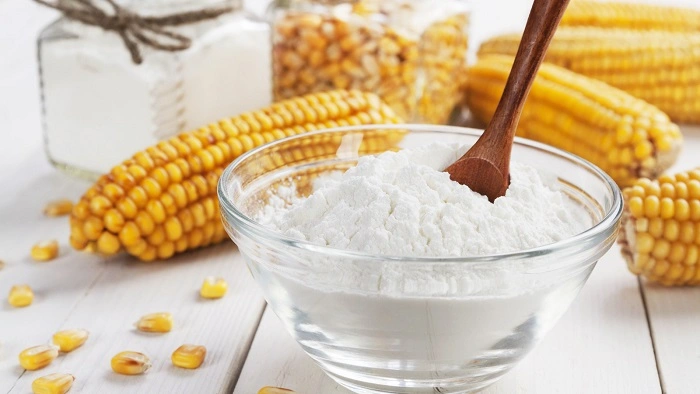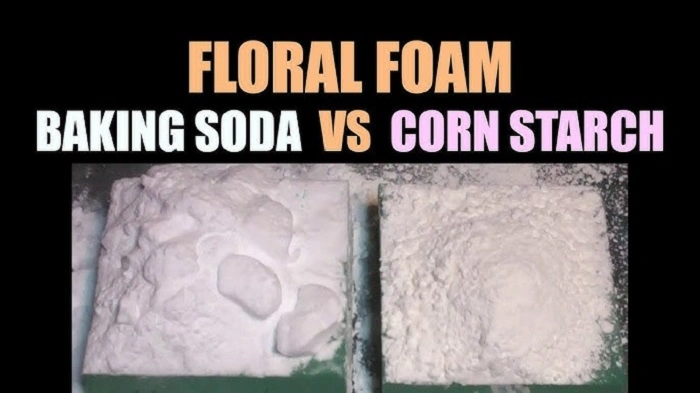When you are baking or cooking, you often come across ingredients like baking powder and cornstarch. These two items, although common in many kitchens, are frequently confused. They may seem similar due to their powdery forms, but they are very different substances with distinct roles in cooking and baking. This article will explain whether baking powder is the same as cornstarch, highlighting their differences, uses, and why understanding them is crucial in recipes.
Table of Contents
What is Baking Powder?
Baking powder is a leavening agent commonly used in baking. It helps baked goods rise, creating a light and airy texture. Typically, baking powder contains three main ingredients: baking soda (sodium bicarbonate), an acid (usually cream of tartar), and a starch (such as cornstarch) to prevent the other ingredients from reacting prematurely. Baking powder is available in two types: single-acting and double-acting.
How Baking Powder Works
Baking powder works by producing carbon dioxide gas when it comes into contact with moisture. This reaction causes the dough or batter to rise. Double-acting baking powder, which is more commonly used, produces gas in two phases—once when wet and once when exposed to heat.
Baking powder is primarily used in recipes that do not contain other acidic ingredients (such as buttermilk or vinegar). It is often used in recipes like cakes, muffins, pancakes, and biscuits.
What is Cornstarch?

Cornstarch, also known as corn flour in some countries, is a fine, white powder derived from the starchy part of corn kernels. It is primarily used as a thickening agent in cooking and baking. Cornstarch is not a leavening agent like baking powder, and it does not help baked goods rise.
How Cornstarch Works
Cornstarch works by absorbing water and forming a gel-like consistency when heated. This property makes it ideal for thickening sauces, gravies, soups, puddings, and custards. Cornstarch is often used in recipes that require a smooth texture and a glossy finish, such as fruit fillings or pie crusts.
Key Differences Between Baking Powder and Cornstarch
While both baking powder and cornstarch are fine powders, they are used for different purposes in cooking and baking. Below are the primary distinctions between the two:
Purpose and Function
- Baking Powder: Used as a leavening agent to help baked goods rise and become light and fluffy.
- Cornstarch: Used primarily as a thickening agent to create smooth textures in sauces, puddings, and soups.
Ingredients and Composition
- Baking Powder: Contains baking soda, an acid, and cornstarch to prevent premature reactions.
- Cornstarch: Made from the starchy part of corn and contains no leavening or acidic components.
Uses in Recipes
- Baking Powder: Commonly used in baked goods like cakes, muffins, and cookies that need to rise.
- Cornstarch: Used in recipes where a smooth and thick consistency is needed, such as gravies, sauces, or pie fillings.
Reaction to Heat
- Baking Powder: Produces gas when it reacts with moisture and heat, causing baked goods to rise.
- Cornstarch: Thickens when heated and absorbs moisture but does not produce any gas or cause rising.
When to Use Baking Powder vs. Cornstarch


Using Baking Powder in Recipes
- Baked Goods: If you’re making cakes, muffins, or cookies, you’ll likely need baking powder to help them rise and become light and fluffy.
- Pancakes and Waffles: These breakfast favorites need baking powder to ensure they puff up while cooking.
- Biscuits and Scones: Baking powder ensures these baked goods achieve a flaky, tender texture.
Using Cornstarch in Recipes
- Thickening Sauces and Gravies: Cornstarch is the go-to ingredient for thickening liquids like gravies, sauces, and soups.
- Pies and Custards: Cornstarch is used to thicken pie fillings and custards, giving them a smooth, firm texture.
- Coating for Frying: Cornstarch is often used in batters for frying, giving food a crispy texture without making it greasy.
Can You Substitute Baking Powder for Cornstarch or Vice Versa?
Since baking powder and cornstarch have different purposes, substituting one for the other is generally not advisable. However, in some cases, there may be limited substitutions:
- Baking Powder for Cornstarch: If you need a thickening agent and are out of cornstarch, you can try using a small amount of baking powder, but it won’t work as effectively. Baking powder is not as potent for thickening, and it may alter the texture and flavor of your dish.
- Cornstarch for Baking Powder: If you’re out of baking powder, you cannot substitute cornstarch as a leavening agent. Baking powder contains baking soda, which produces the necessary rise in baked goods, whereas cornstarch only thickens liquids.
FAQ
Can I use cornstarch instead of baking powder in a cake recipe?
No, cornstarch cannot replace baking powder in a cake recipe. Baking powder is necessary for leavening, while cornstarch is a thickening agent and does not help cakes rise.
Can I use baking powder instead of cornstarch to thicken a sauce?
No, baking powder is not suitable for thickening sauces. It is a leavening agent and will not create the smooth consistency that cornstarch provides.
What happens if I use too much baking powder?
Using too much baking powder can cause your baked goods to rise too quickly and then collapse, resulting in a dense, bitter, or overly crumbly texture.
Is there a gluten-free alternative to cornstarch?
Yes, there are several gluten-free alternatives to cornstarch, such as potato starch, arrowroot powder, and rice flour, which can also be used as thickening agents.
Can I use cornstarch in gluten-free baking?
Yes, cornstarch is naturally gluten-free and can be used in gluten-free baking as a thickening agent or as part of a gluten-free flour blend.
Baking powder and cornstarch are two distinct ingredients, each with its own specific uses in cooking and baking. While baking powder helps baked goods rise, cornstarch is primarily used as a thickening agent. Understanding the differences between the two will ensure that you can use them correctly in your recipes and achieve the desired results.

